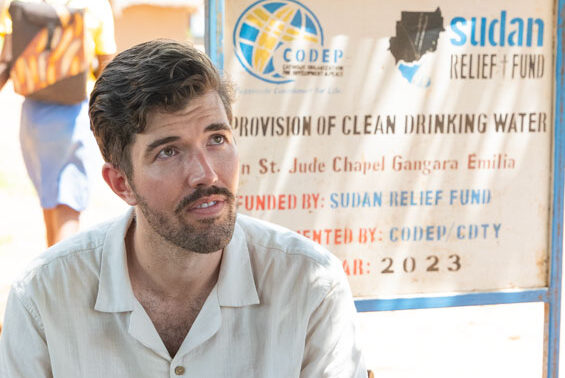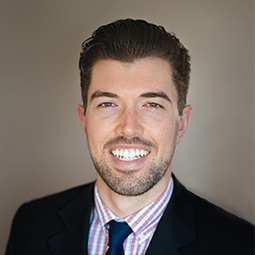Thirsting for Clean Water
School Children Sick and Dying from Germ Ridden Water
Kuany eagerly wanted to go to school. Attending Bishop Abangite School of Science and Technology in Yambio was a rare and fortunate opportunity in South Sudan. Education can be life changing here.
But every day at school, Kuany felt worse. His stomach constantly ached, and he could barely concentrate in class. He developed a fever that grew more severe throughout the day, and the nausea was relentless. Worse, many of his classmates were suffering the same symptoms.
Eventually, Kuany was too ill to continue. He stayed home from school like many of his classmates, unsure if they’d ever be able to return. Days passed before Kuany began to improve.
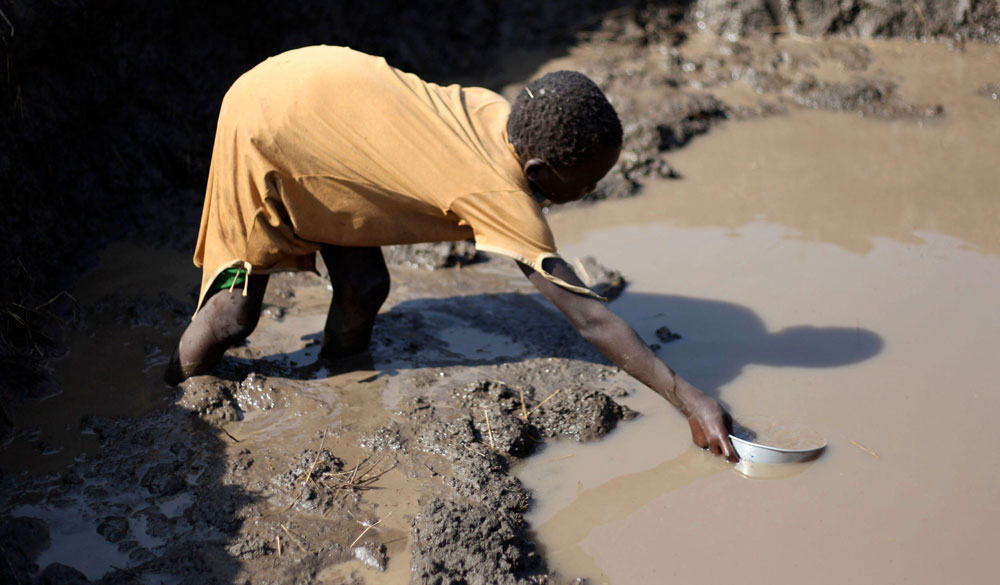
Would you drink this? It’s common here for children to fill their buckets with muddy water. They will use this to drink and cook with.
But some of his classmates weren’t so lucky. Several had to be rushed to the clinic after collapsing, suffering from intense fever and dehydration. They had contracted typhoid—spread through the filthy water they had no choice but to drink at school.
Drinking Diseases
Typhoid. Cholera. Dysentery. All potentially deadly diseases found in South Sudan’s polluted water. A tragic lack of clean water has plagued the nation’s people since the birth of this young country.
Poverty and lack of sanitation are widespread. To make conditions worse, dry seasons with no rain can last for months, and droughts can become deadly. People grow desperate to drink any water they can find. Some will dig with their hands until they find moist dirt and just take up the mud in a bottle.
“During the dry season desperate people eat mud to try to get hydration”
More than half the country of South Sudan has no access to clean water. Drinking water is snatched from any source available. Rivers, ponds, even muddy puddles. But in dry season even puddles may not exist.
The drinking water often becomes polluted by runoff in areas where there is no sanitation. People and animals defecate in the outdoors. This human and animal waste washes into local water sources.
Stagnant water gets even worse. In addition to the filth, the waters may be teeming with bacteria that breed exponentially in the stagnant water. It’s especially lethal for children – a leading reason why many children here never see their fifth birthday.
It takes just one compromised sip to become ill.
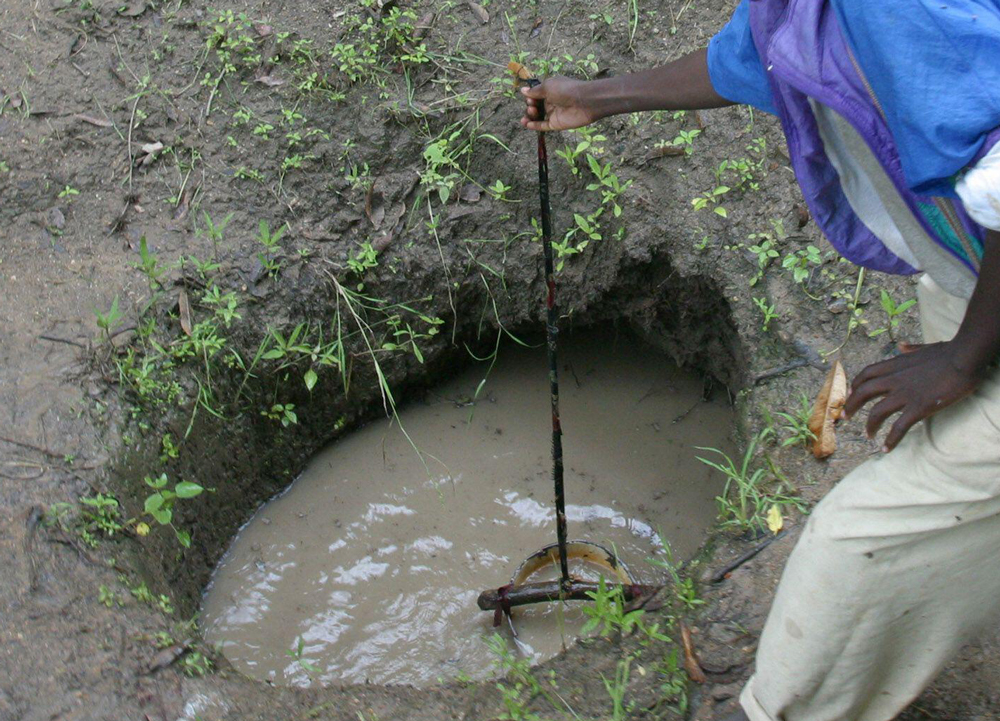
In the dry season desperate parents dig into the dirt to find muddy water and give it to their children to drink for hydration.
No Other Choice
I have personally seen firsthand the water some people are forced to drink. It’s dark and silty – essentially muddy water. I can’t imagine taking one sip of it, let alone consuming it regularly.
While a person may be able to live for a number of weeks without food, he or she can only survive for three days without water. Just three days.
Which is why so much of South Sudan’s population drinks polluted water. They have no other choice. They’re faced with a cruel decision between consuming filthy drinking water – or none at all.
“Water everywhere but not a drop to drink”
One of the great ironies is there is believed to be plenty of water in Africa. Recent scientific studies show most African countries have enough groundwater reserves to see them through at least five years of drought – in some places up to 50 years!
If they could just reach it.
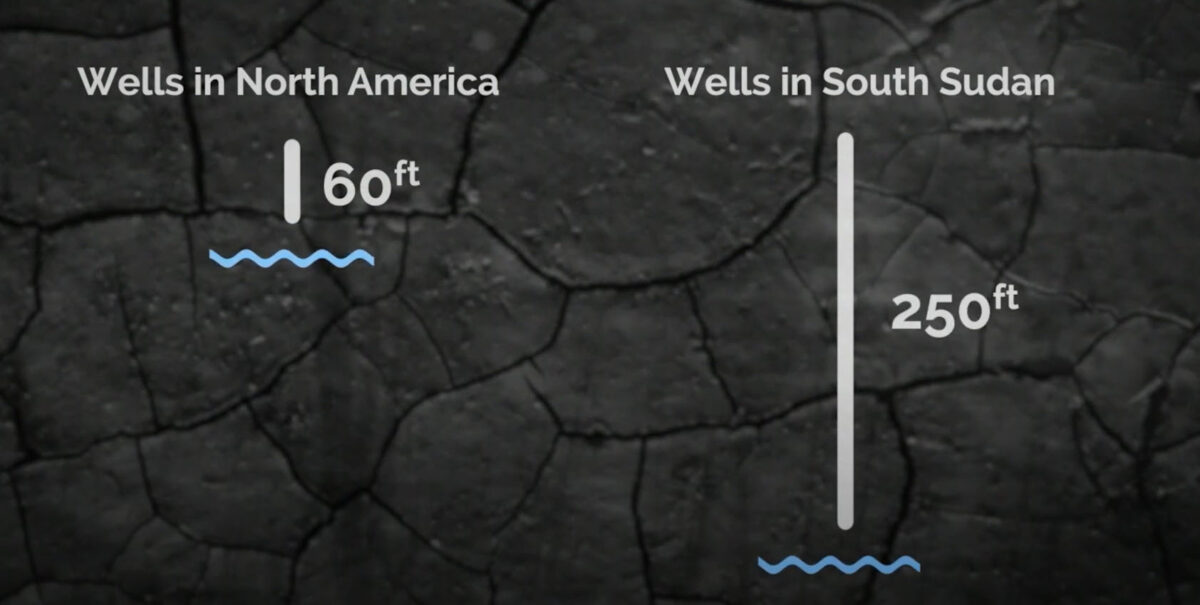
The average groundwater in South Sudan is deep beneath the surface and requires specialized drilling equipment to reach.
Sudan Relief Fund, through the generosity of donors and partners, has prioritized bringing clean water to South Sudan for many years. Your partnership has made tangible and encouraging progress in many locations.
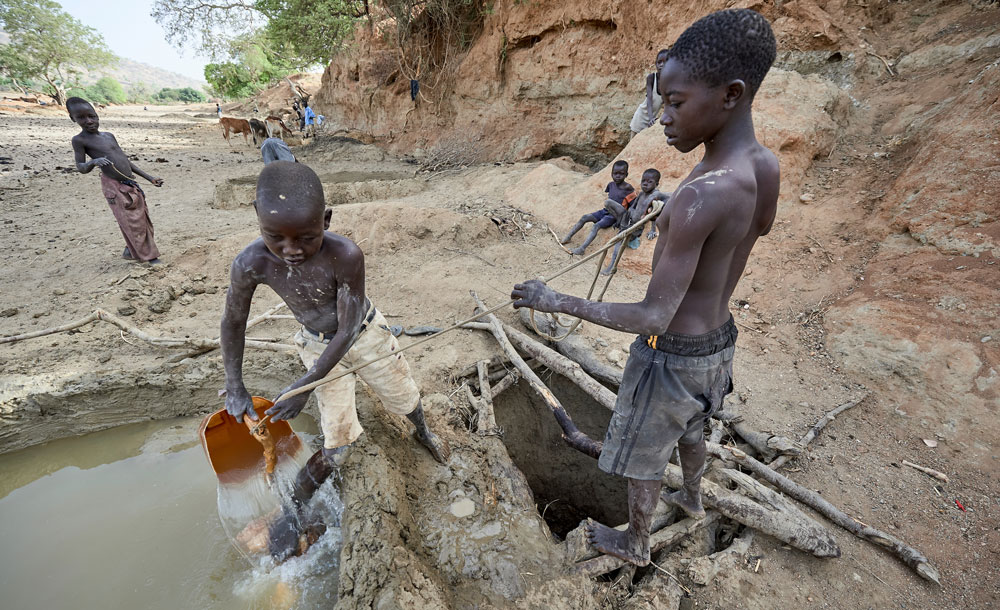
Water is often polluted with human and animal feces and deadly bacteria – a cause of diseases like cholera and typhoid.
Water Changes Everything
The one act of introducing clean water to a community changes the entire course of their lives. Consider the ripple effects clean water makes:
- Saves untold lives by eliminating disease from drinking water
- Slashes childhood mortality
- Promotes improved hygiene and sanitary practices, less spread of germs
- Protects girls from dangers faced on remote treks to find water
- Saves women hours in the day from long hauls; can devote more time at home
- Healthy children can attend school
- Healthy adults can support their families
- Boosts agriculture, livestock, and food production
- Healthy mothers have healthier babies
- Less money spent on medicine, more money for food and education
- Helps break the cycle of poverty
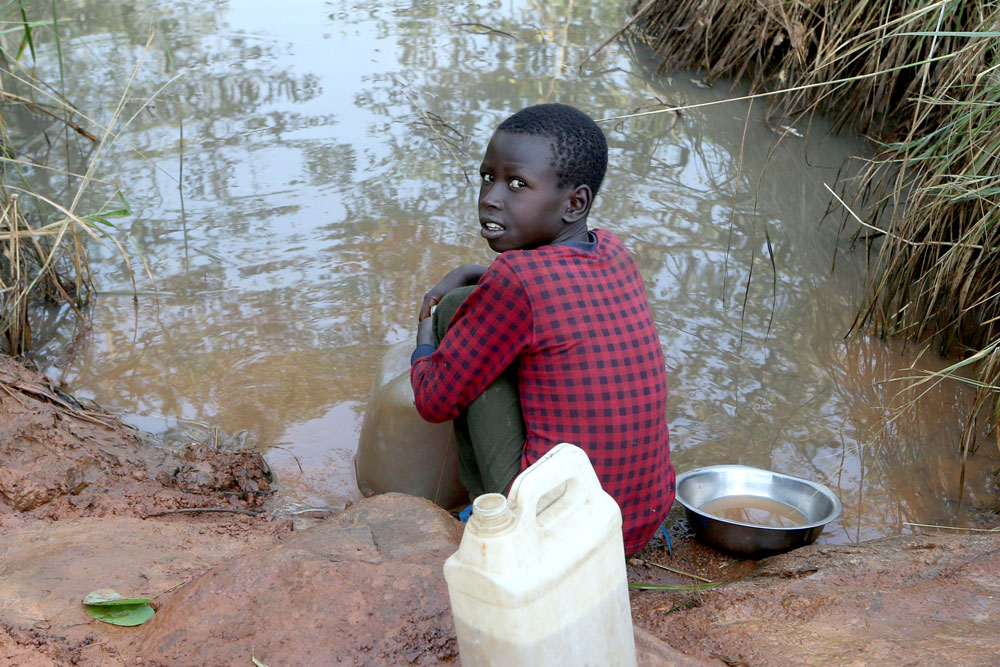
Children at Kuany’s school were getting sick and dying from polluted water. With your help, we provided a well that saved them.
All it Takes
A well-digging crew can bring clean water to remote villages. To drill a borehole and install a basic handpump well in South Sudan costs approximately $15,000 US dollars. Just $15,000 for one handpump well can provide clean water for over 1,000 people now, and thousands more for years and generations to come.
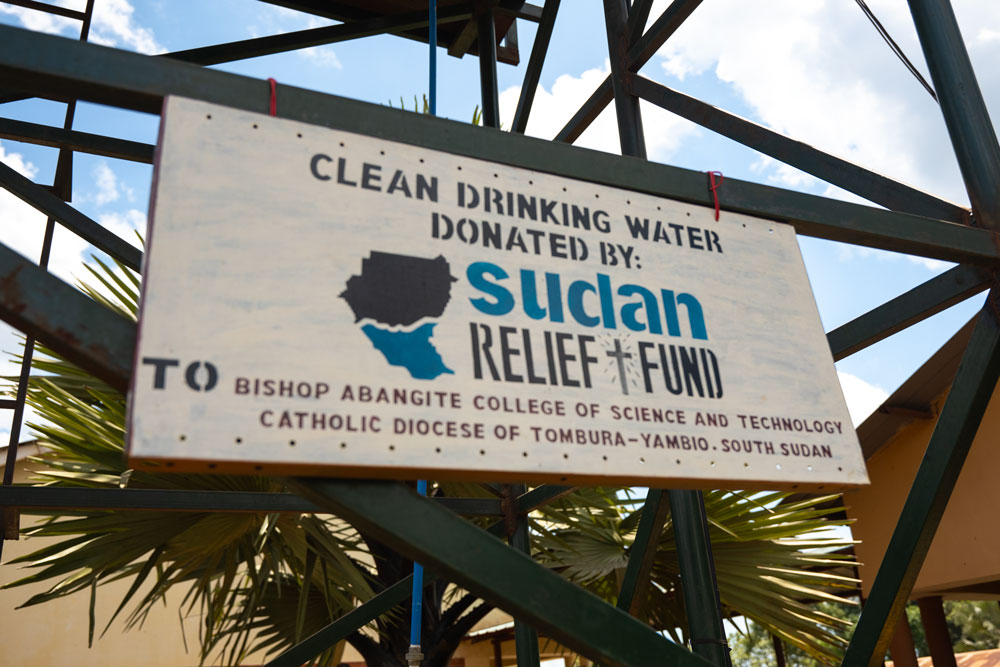
Clean water not only halts waterborne disease. It helps stop the cycle of poverty by creating thriving communities, where parents can work and children can go to school.
Larger wells can save up to 5,000 people. And for just $2,000, our partners can mend a pump that needs repair. Your monthly donations provide ongoing support for well drilling and clean water initiatives in South Sudan.
When the Clock is Ticking
Clean water is the basic ingredient for life. But what if you didn’t have it? What if there were no faucets to turn on to wash your hands, wash the dishes, launder clothes, or take a shower? What if there were no clean water to fill your cooking pots, to make coffee or tea, or simply drink to stay hydrated?
Everything depends on clean water.
In a mere 24 hours a person can become severely dehydrated, shutting down kidney function, followed by the brain, the liver, and eventually the heart.
“When a child is extremely dehydrated, they can cry but shed no tears”
Would you give your child dirty water if they were pleading with you for something to drink, and you had no other alternative? These are the agonies people in South Sudan face regularly.
In the past year alone, our donors and partners have made it possible to drill dozens of water wells all across South Sudan in Rumbek, Torit, Yambio, Tombura, and many other locations. More are planned for the coming months. Many more are needed.
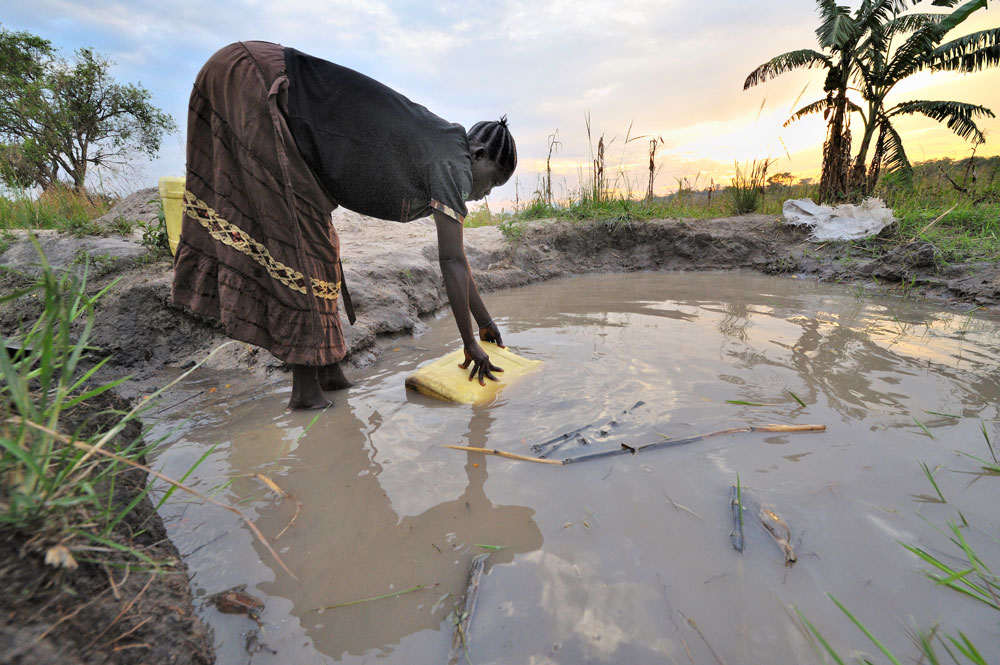
The human body can survive weeks without food, but it can take only three days to die without water. It’s a cruel choice between water like this or none at all.
Needed Every Day
It is true, the saying that water is life. Without it, none of us can survive.
Water isn’t just needed for today. It’s also needed for tomorrow, next year, and the next. That’s why, if you can, we ask you to please consider a monthly gift to Sudan Relief Fund, to ensure clean water can continue to save people’s lives – young people like Kuany, and many other school children like him. Your gift toward giving clean water wells to a community will impact generations of people to come.
“I recently attended the dedication of a water well in South Sudan, where I heard stories like Kuany’s. His is one of many that I hear, telling the suffering of people who are forced to live without clean water.”
– Matt Smith
While Kuany recovered after receiving treatment for typhoid, several others in his school and community lost their lives to the disease. The contaminated water had spread illness not only among the children but throughout the entire community. These were preventable deaths—lives that could have been saved if only they had access to clean water.
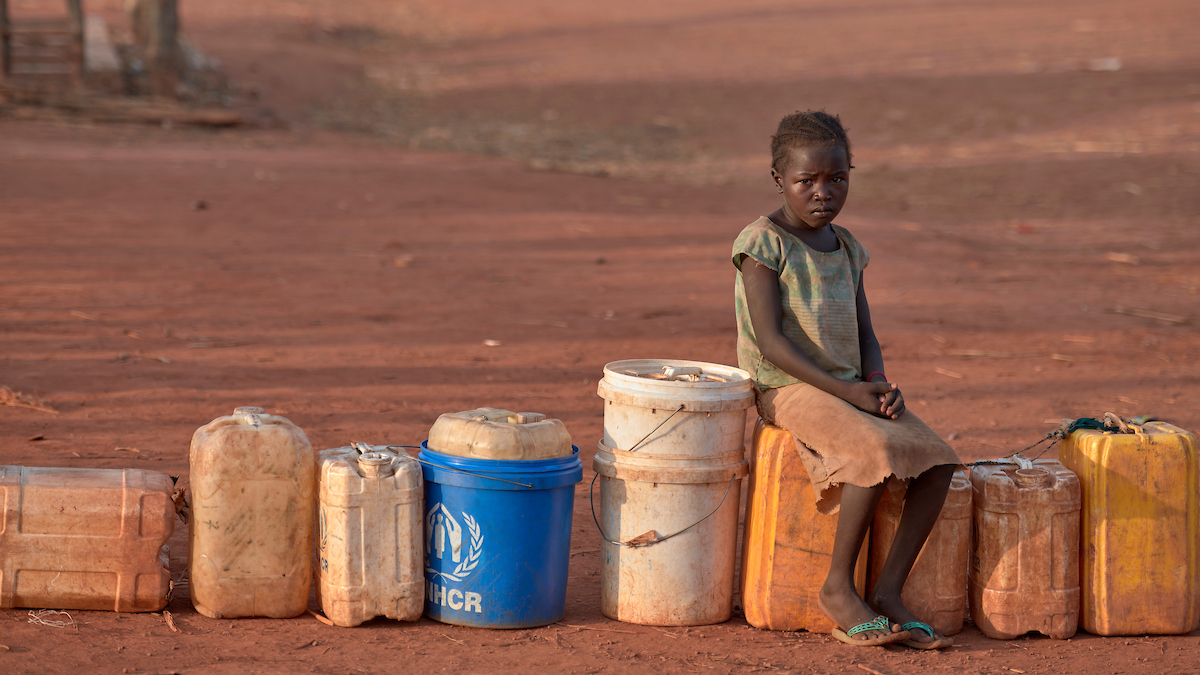
Girls risk their personal safety each time they’re forced to make hours-long trips in search of water to bring back home.
Bringing Water Brings Life
In 2023, I had the blessed opportunity to witness the dedication of a new solar-powered water well at Bishop Abangite School in Yambio, one that will bring clean, fresh water to Kuany and more than a thousand secondary students. Even more, it will also provide clean water for the surrounding community.

Clean water changes everything with lifegiving benefits that reverberate for generations. An average well can serve 1,000 people and larger wells can reach 5,000 or more.
Bringing the gift of clean water to people who’ve suffered without it is an incredible experience. Seeing the sheer joy it brings, the delight of children, the relief in the eyes of women, and the heartfelt celebration of hope by an entire community – is something I will never forget.
We ask you to continue your partnership with us, or to please join us if you haven’t before – until the scourge of filthy water is something people in places like South Sudan no longer have to endure. Please join us to give water, and give life.
PS – Thank you for standing with us to provide clean water to those in need. There are many more suffering needless sickness and death from filthy water. It’s easy to prevent this tragedy. Please consider a recurring gift for families in need by giving the simple and profound gift of clean water.
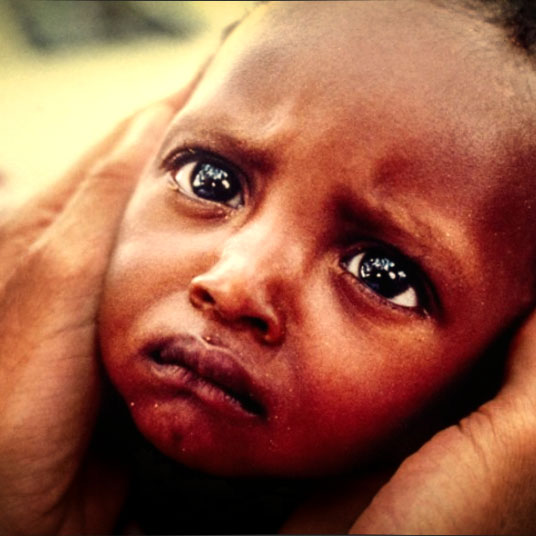 Increase Your Gift at No Extra Cost!
Increase Your Gift at No Extra Cost!
Did you know you may be able to double the amount of your gift without giving an additional dollar of your own? Thousands of companies participate in Corporate Match programs. This means they match dollar-for-dollar the amount their employees donate to charitable organizations – doubling your gift! Imagine creating twice the impact of your contribution.
Learn more about the Corporate Match Program.



